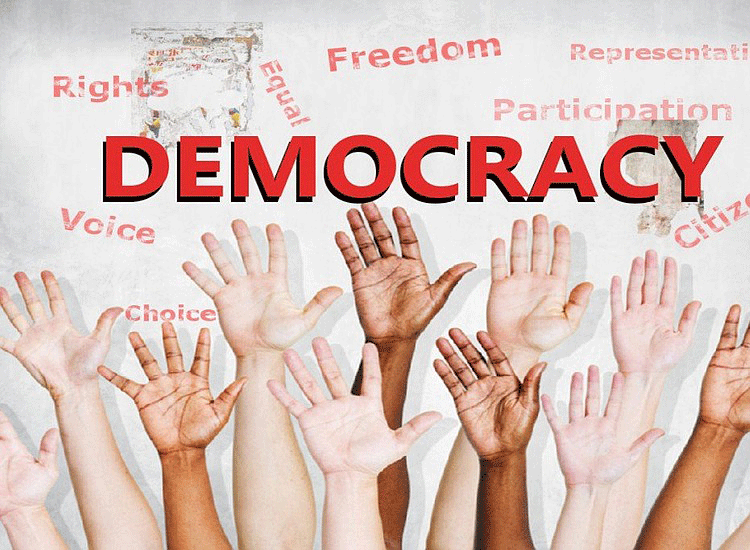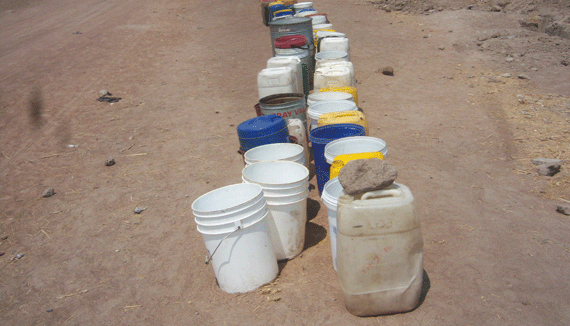
[ad_1]
By Ebenezer I Obeng-Akrofi
INTERNATIONAL Day of Democracy was commemorated on Wednesday. Thoughts of democracy should come with a feeling of accomplishment, progress, development and wellbeing of nations. However, the mention of democracy on the continent is often associated with corruption, greed, abuse of political power and the entire misnomers one can imagine.
As days go by, we are observing increasing cases of unrest around the continent, mostly led by young men and women. Their actions echo the internal and secret feelings many individuals living in African nations have about their governments. The determination behind these protests is not elusive. They are on the streets and online to demand decent lives in all spheres. Nigeria, Ghana and South Africa are just some of the recent examples.
Most African leaders have done little to improve the lot of their people, who are extremely poor, while they, and their colleagues, live in luxury. The rot has permeated the political chain to elected and appointed public officials, beginning with political parties.
We are told that party financiers direct who holds what public office but without respect for capacity. These financiers ultimately indirectly determine how State issues are addressed and assets distributed. In this manner, elections don’t seem to help, mainly as the politicians are the same. Although African political parties aspouse different ideologies and unveil welfare manifestos, there is rarely a change in the lives of citizens when governments change.
Corruption is rife throughout the region. Associated with this is the undeniable fact that anti-graft endeavours fall flat due to the absence of honest and accountable persons in leadership. In a bid to remain in power, many have adopted democratic systems, such as regular elections, or they just make the rules as they go along.
Behind everything lies a voracious hunger for money, and the acknowledgement that power can deliver untold wealth. In these situations, worked out across many nations on the continent, the State and individuals are sacrificed to greed. Those fearless enough to speak out are driven out, either in a real sense or metaphorically.
- Chamisa under fire over US$120K donation
- Mavhunga puts DeMbare into Chibuku quarterfinals
- Pension funds bet on Cabora Bassa oilfields
- Councils defy govt fire tender directive
Keep Reading
It is an open secret that each year billions of dollars are lost through illegal exchanges from the continent. In addition to the fact that this stalls the continent’s economic progress, it undermines peace, security and stability especially taking into account the rise in extremist activities in the region. Studies will show that corruption facilitates the spread of extremist/radical philosophy and has a high potential to induce the youth to join these groups.
Though the pervasiveness and consequences of corruption in Africa have been generally expressed, the battle against it is by all accounts a short-lived ruse. Anti-graft measures primarily centre on passing laws to tighten gaps, reinforcing anti-corruption institutions, and empowering the media and populace to stand up against acts of corruption everywhere. However, crucial to the accomplishment of these measures is the regularly ignored yet pivotal role of good leadership.
To curtail corruption and its adverse effects requires an enthusiastic, capable and far-sighted leadership. However, the continent seems to be grossly deficient in such leadership.
Often we are quick to react and criticise Western reportage about bad governance on the continent but, the reality is that our leaders have done close to nothing to change the narrative. Africa is home to tyrants who either misuse their power or permit abuses to be executed while they sit back and watch.
Nations are run like family businesses and political empires are created and passed on as if a father is passing on family property. In effect, corruption continues to be on the ascend as leadership further deteriorates due to weak checks and balances, crushing of dissent and discarding of alternative views.
While elections continue to be held and leaders changed through the ballot, one would like to see the principles associated with democracy produce visionary and effective leaders, however, this is seldom the case in Africa.
In many cases, policies and corrupt practices which were condemned by opposition political leaders all of a sudden become right and reasonable when they win power. Basically, there might be new faces in government, yet the status quo remains. Why?
At the core of Africa’s corruption and leadership problems is obscure party financing laws. In most countries, parties depend on private financing from people and associations. Yet, guidelines on monetary disclosure are either absent or futile.
Therefore, affluent individuals, identified as financiers, exert significant influence, fundamentally for their advantage yet to the detriment of the State. Consequently, even leaders perceived to be strong-willed can find it hard to withstand the pressures.
These examples demonstrate the extent to which African leaders can be used as puppets by vested interests and self-seeking financiers. In some cases, the leaders are incapable of addressing the excesses of their sponsors, leading to impunity and recklessness.
The way forward! Conscious efforts, as well as practical measures, must be adopted in Africa to regulate political party financing and strengthen State institutions such as electoral commissions to enforce compliance. Until then, most leaders on the continent will continue to be prone to capture and control by powerful and parochial financiers. What’s more, the plundering of public assets will not stop.
Let us all endeavour to contribute in our own small ways to the Africa we want by abhorring all acts of corruption.
For, it is only when we have held our own selves to account, that we can have an ounce of moral right to demand accountability from our leaders.
- Ebenezer Immanuel Obeng-Akrofi is programmes assistant at JA Africa, Ghana
[ad_2] Source link










